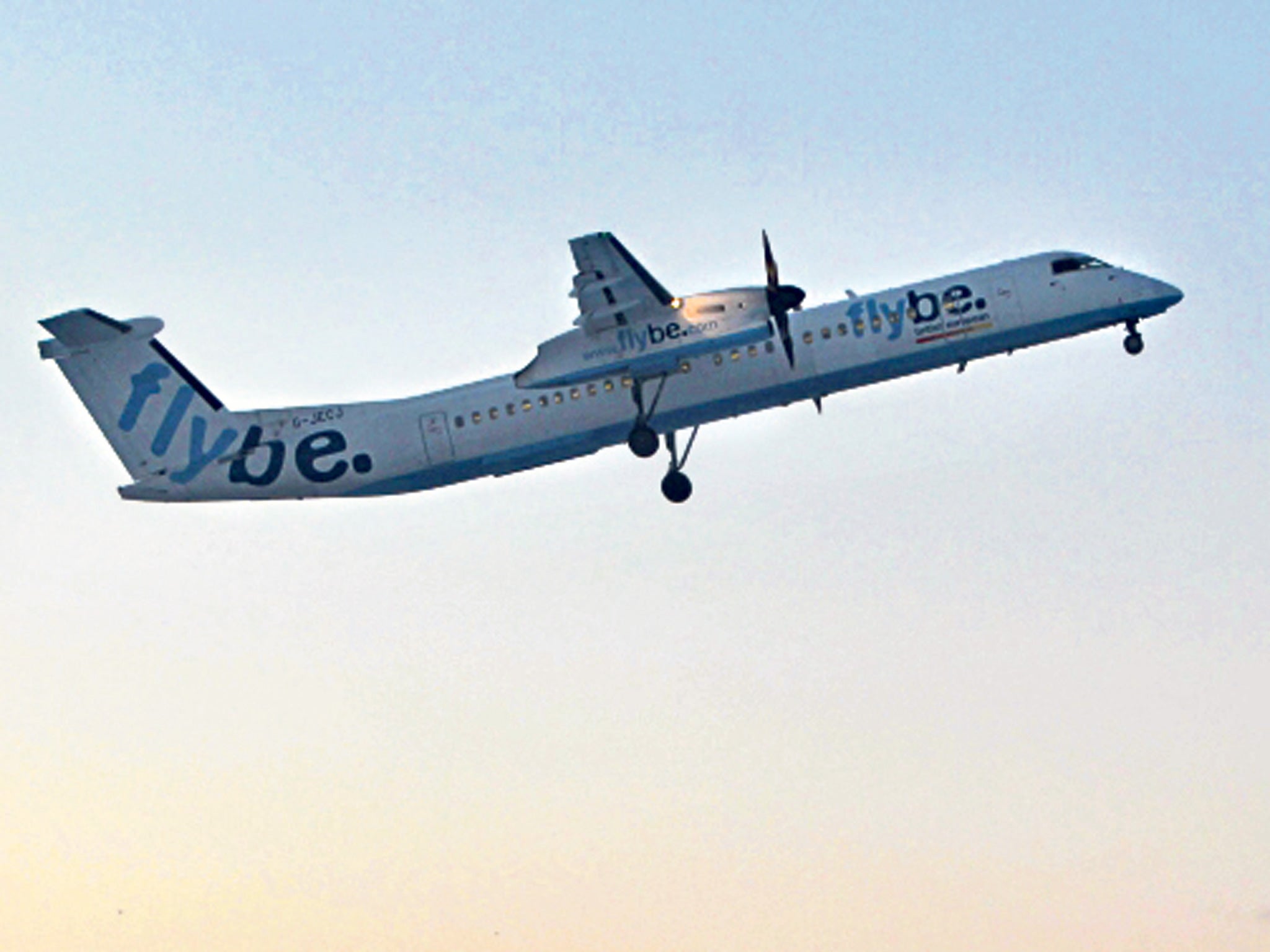No need to fume about flight risks or budget airlines
The man who pays his way

Headlines, as The Independent's Guy Keleny notes in his excellent Errors & Omissions column, can sometimes provide a misleading impression of the article that follows. This week, the dark nether world where travel meets the media decided to take this notion to extremes – with no fewer than three headlines about aviation that turned out to be the exact opposite of the real story.
On Monday, the alarming headline "Flying on Fumes" yelled out from page 11 of The Sun: "Planes are repeatedly running dangerously low on fuel during flights over Britain," it warned, citing Virgin Atlantic and Ryanair flights that made "low-fuel emergency landings".
Running out of petrol in your car is a nuisance; at 30,000ft it is even more inconvenient. So how worried should passengers and people on the ground be? Happily, not at all. All the incidents involved diversions at the extreme end of the spectrum, with bad weather closing the intended airport and causing extended "holds" above the diversion airport.
Every pilot on every flight must load enough fuel to reach a different airport if the planned destination is closed, with 30 minutes' supply remaining in case there is a delay in landing at the alternate. If that half-hour supply looks in any jeopardy, then the captain will act. He or she will do what a traveller running late at an airport security check would do: ask to jump the air-traffic queue. It may be inelegant and awkward, but it isn't dangerous. It is simply a procedure to ensure "Flying on Fumes" never happens.
On Tuesday, the consultancy firm KPMG issued a report headlined "The End of Low Cost Flying". Happily, for those of us who rely upon airlines such as easyJet and Monarch, anyone reading the report would realise that it described "The End of High Cost Flying". It explained that the so-called "legacy" carriers – Air France, British Airways, SAS, etc – have done wonders to tackle their costs. As a result, the differential in the average cost of flying each seat one kilometre ("ASK", in airline parlance) has shrunk. So on the 1,000-mile route from Gatwick to Malaga, easyJet used to have a cost advantage of about £40 per seat over British Airways – but this has now shrunk to about £25.
One month from today, the evening flight to Malaga costs £36 on easyJet, and only fractionally more at £39 on BA. Both airlines offer free allocated seating (as easyJet turns itself into British Airways), and charge an extra £15 to check in a bag (as BA turns itself into easyJet).
Ending the lottery on flight delays
On Wednesday, the European Commission announced "new measures to strengthen air passenger rights" – and once again, the reality negates the headline. The proposed rules on flight delays will weaken air passenger rights. The present regulation, known as EU261, came into effect eight years ago. Airlines have been arguing about it ever since. They are particularly upset about their open-ended duty to provide accommodation if a flight is delayed for any reason. That liability is to be capped at three nights. If you are flying less than 155 miles, on a plane with fewer than 80 seats – such as Flybe's Dash 8 planes from Edinburgh and Glasgow to Belfast – you will have no rights at all in the event of a delay.
The right to claim compensation of up to €600 if your flight is at least three hours late will also end. The bar will be raised to five hours for short-haul flights, and increase to 12 hours for long-haul trips. The commission says the aim is to encourage airlines to find alternatives to cancelling the flight. But I suspect it is because the airlines have lobbied successfully on the absurdity of the rule, which arose from a court judgment.
Example: you may remember that last Tuesday saw Sussex (and much of northern France) smothered in snow. Many airline staff had problems getting to Gatwick. One consequence: BA's flight to St Lucia was delayed by about four hours. Annoying, certainly, to be grounded at Gatwick for the morning rather than carousing in the Caribbean all afternoon. Yet does it really justify hundreds of pounds in compensation?
Unless BA can successfully plead "extraordinary circumstances", the total bill could top £100,000. A pleasant surprise for passengers, some of whom will find they have flown free – but disproportionate to the harm caused. It looks more like a state-enforced lottery than a sensible scheme intended to compensate for inconvenience. Ultimately every passenger will pay for it in the shape of higher fares.
Ironically, BA provided the delayed St Lucia passengers with meal vouchers and bottled water, even though EU rules on care did not require it.
Airlines: stop being pernickity on tickets
Two long-overdue proposals were concealed at the very end of the commission's statement. Passengers who make spelling mistakes on their bookings will be able to get them put right without penalty; currently some airlines and agents charge hundreds of pounds for trivial errors. And if you buy a round-trip ticket but can't use the outward half, the return leg will still be honoured; at present, many airlines simply cancel your entire trip. So what took Brussels so long?
Join our commenting forum
Join thought-provoking conversations, follow other Independent readers and see their replies
Comments
Bookmark popover
Removed from bookmarks